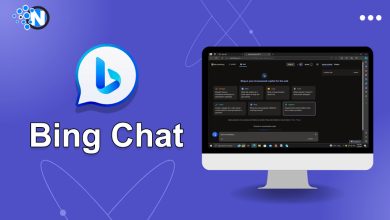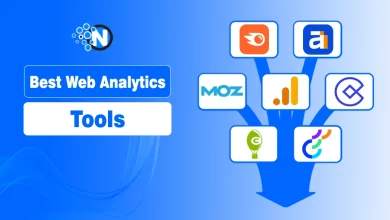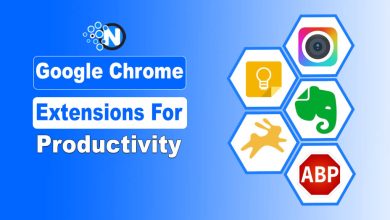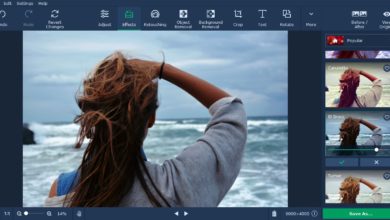Top 10 Web Design Tools You’ll Love in 2025

As a web designer with over a decade of experience, I’ve seen the web design landscape evolve dramatically. Manually-coded HTML pages are a thing of the past. Drag-and-drop web design tools are now available, enabling anyone to build stunning websites without writing a single line of code.
Whether I’m working with startups, bloggers, or small businesses, I consistently seek out tools that prioritize speed, flexibility, and creative freedom. Honestly, the options today are better than ever.
In this blog post, I am going to share the ten no-code web design platforms I’ve used, tested, and trusted to deliver beautiful, functional websites for clients.
What Are No-Code Web Design Tools?
No-code web design tools are platforms that allow users to create websites, apps, or digital experiences using visual interfaces instead of writing code.
These tools simplify HTML, CSS, and JavaScript, allowing anyone to design and publish web content. Even with zero to basic designing knowledge.
Key Benefits of No-Code Web Design Tools:
- No coding required: You don’t need to learn programming languages.
- Fast development: Build and launch websites in hours or days.
- Cost-effective: Avoid hiring developers or agencies.
- Creative freedom: Customize layouts, animations, and interactions visually.
- Responsive design: Most tools offer built-in mobile optimization
Top 10 No Code Web Design Tools

1. WordPress
An alternative way to set up a website, WordPress is a mix of flexibility, easy-to-use, and power, when it comes to designing a website. It is mostly preferred for building a content-based website. To get started, you can create a free WordPress account or set up a self-hosted WordPress site. Setting up a website on WordPress takes just a few minutes.

Key Features:
- WordPress offers free and premium web-design templates, features, and plugins.
- The drag-and-drop functions in the built-in framework of an installed theme can be used to create your own design.
- WordPress is great for creating a professional-looking website without having to code.
- With its free add-ons and multiple features, customizing your website is easy.
2. Webflow
Absolutely no coding knowledge is required, Webflow is a cloud-based service that allows people to get started with web design. Webflow promotes the concept of ‘smart codelessness’ and is cross-platform. It empowers you to ‘build professional, custom websites in a completely visual canvas with no code’.

Key Features
- The tool has free available templates and a drag and drop interface that allows you to easily add elements like images, text, etc. onto a page on your website.
- Its automation creates the needed HTML/CSS code for you. To create a seamless customized design for your website, you can individually edit the elements using the panel or hire a Webflow expert to do that for you.
- Apart from using its designer product, you can create an online store with its eCommerce and CMS.
- You can check out their free demonstration of its features and/or use their free Starter package to get started.
- It allows you to add animations and other visual interactions to your website easily.
3. Wix
Known as the best web design tool for beginners, Wix is a website building software that enables you to create, design, develop and manage your web presence. Through the Wix website builder, you can start a website to promote your business, open an online store or even start a blog.

Key Features:
- You can pick a template from its already available range, customize your website, and add other features like a store for products or accepting service bookings.
- With this tool, you can optimize the mobile view of your website and personalize it even more. It also offers an SEO plan to help you increase your online visibility.
- It is also a drag-and-drop website builder that enables you to add videos, animations, and other visual elements to your website.
4. Shopify
A web design software specifically if you want to start your own eCommerce website. Shopify helps you convert your retail store into an online store to grow your business. You can bring your eCommerce platform to Shopify and get started with all the sale features that you need to start and run your business.

Key Features:
- Shopify allows you to access the built-in tools for marketing your business. On Shopify, you can create, execute and analyze digital marketing campaigns.
- Its motto is to empower independent business owners all over the world and earn more money.
- You can use this platform to create an online presence, design and set up an online store, and do branding of your business. It is an all in one platform for business owners.
5. SquareSpace
Squarespace, a website builder, is an alternative to Wix and WordPress, offering a drag-and-drop interface for a user-friendly website creation experience. You can design a professional website, an e-portfolio, a blog, or even an online store using this tool.

Key Features:
- You can use their existing templates to get started and customize them according to your design needs.
- Along with customizing the pages, the website builder helps with menus, navigation, and visual elements too.
- You can optimize your website with its responsive web design for mobile device features.
- Every website is built to create an online presence that the owners work on to rank higher in search results.
- This tool offers in-built SEO features and offers useful guides to maximize your efforts. Its other features include a free logo maker for your brand and adding a custom domain for your website.
6. Weebly
Weebly is one of the best web design tools available these days. It comes with a free website builder for creating a website, online store, or blog. Weebly has everything from domains and editable templates to easy-to-use tools that you may need to build a great online presence for your personal brand or business.

Key Features:
- Its built-in editor allows you to customize your website or online store extensively.
- Password protection, site search, and advanced site stats are some other great features of this web design tool. Weebly pricing plans start from $5 per month.
- Weebly premium users are offered with free SSL certificate and unlimited storage.
7. Canva Websites
Canva has evolved from a graphic design tool into a surprisingly capable website builder. It is perfect for quick launches, personal pages, and small business sites. I’ve used it for event pages and client presentations. It’s fast and looks great.

Key Features:
- Drag-and-drop interface with thousands of templates.
- Built-in branding kits and design elements.
- Responsive design that works across devices.
- Free hosting and custom domain options.
- AI-powered layout suggestions and content generation.
8. Unbounce
Unbounce is built for marketers, and I’ve used it for high-converting landing pages and A/B testing campaigns. It’s packed with optimization tools and integrates seamlessly with CRMs and email platforms.

Key Features:
- Drag-and-drop builder with conversion-focused elements.
- A/B testing and analytics dashboard.
- AI-powered Smart Copy and Smart Traffic.
- Integrations with HubSpot, Mailchimp, and more.
- Templates designed for lead generation and sales.
9. Dorik
Dorik is a newer tool I’ve been experimenting with, and it’s fantastic for landing pages and startup sites. It’s lightweight, fast, and incredibly easy to use. I’ve built MVPs and client demos in under an hour using Dorik.

Key Features:
- Clean drag-and-drop builder with pre-made blocks.
- Hosting and custom domain support.
- Built-in blogging and CMS functionality.
- Responsive design and SEO tools.
- Affordable pricing and generous free tier
10. Framer
Framer is a web-based design platform that allows users to create interactive websites, prototypes, and digital assets. Originally launched as a prototyping tool for React developers, Framer has evolved into a full-fledged no-code website builder that competes platforms like Webflow and Figma.

Key Features:
- Framer lets you design freely on a canvas similar to Figma, then instantly publish your work as a live website.
- You can add transitions, hover effects, scroll animations, and responsive layouts—all without writing a single line of code.
- Framer offers unlimited projects, pages, and collaborators at no cost.
- Manage content dynamically and optimize your site for search engines directly within Framer’s interface.
Pro Tips For Using No Code Web Design Tools
Here’s a detailed comparison table of 10 popular no-code web design tools, highlighting their pros, ideal use cases, and pricing models:
| Tool | Best For | Ease of Use | Design Flexibility | E-Commerce | CMS Support | Pricing Model |
|---|---|---|---|---|---|---|
| WordPress | Blogs, scalable websites | Moderate | High (with plugins) | Moderate | Strong | Free + paid hosting/plugins |
| Webflow | Professional custom websites | Moderate | Very High | Strong | Strong | Free tier + paid plans |
| Wix | Small business, portfolios | Very Easy | Moderate | Moderate | Basic | Free + premium plans |
| Shopify | Online stores | Easy | Moderate | Excellent | Limited | Paid plans only |
| Squarespace | Creatives, portfolios | Easy | High | Good | Moderate | Paid plans only |
| Weebly | Simple websites | Very Easy | Low | Moderate | Basic | Free + paid plans |
| Canva Websites | Quick landing pages, portfolios | Very Easy | Moderate | Limited | None | Free + Canva Pro |
| Unbounce | Marketing landing pages | Moderate | Moderate | Limited | None | Paid plans only |
| Dorik | Startups, freelancers | Easy | High | Moderate | Strong | Free + paid plans |
| Framer | Design-first websites | Easy | Very High | Moderate | Strong | Free + paid plans |
Pro Tips For Using No Code Web Design Tools
- Test out several tools and use the ones that complement your work the best. If the tool has a trial version, use that to get an idea before you commit to it.
- Remember to focus on the simplicity of the tool and the ease of using it rather than going after a tool that offers an extensive feature set.
- Several people do get intimidated by the idea of coding; however, now with these tools, you can seamlessly customize code for building a great website.
Concluding Thoughts
These web design tools will help you create professional looking websites easily in less time. If you are new to web designing, know that these mentioned tools are worth investing in, considering their functionality.
WordPress is my all-time favorite tool for designing all types of websites as it offers lots of add-ons, plugins, and themes. Based on your goal, you will have to select one or more tools to achieve your desired outcome.




